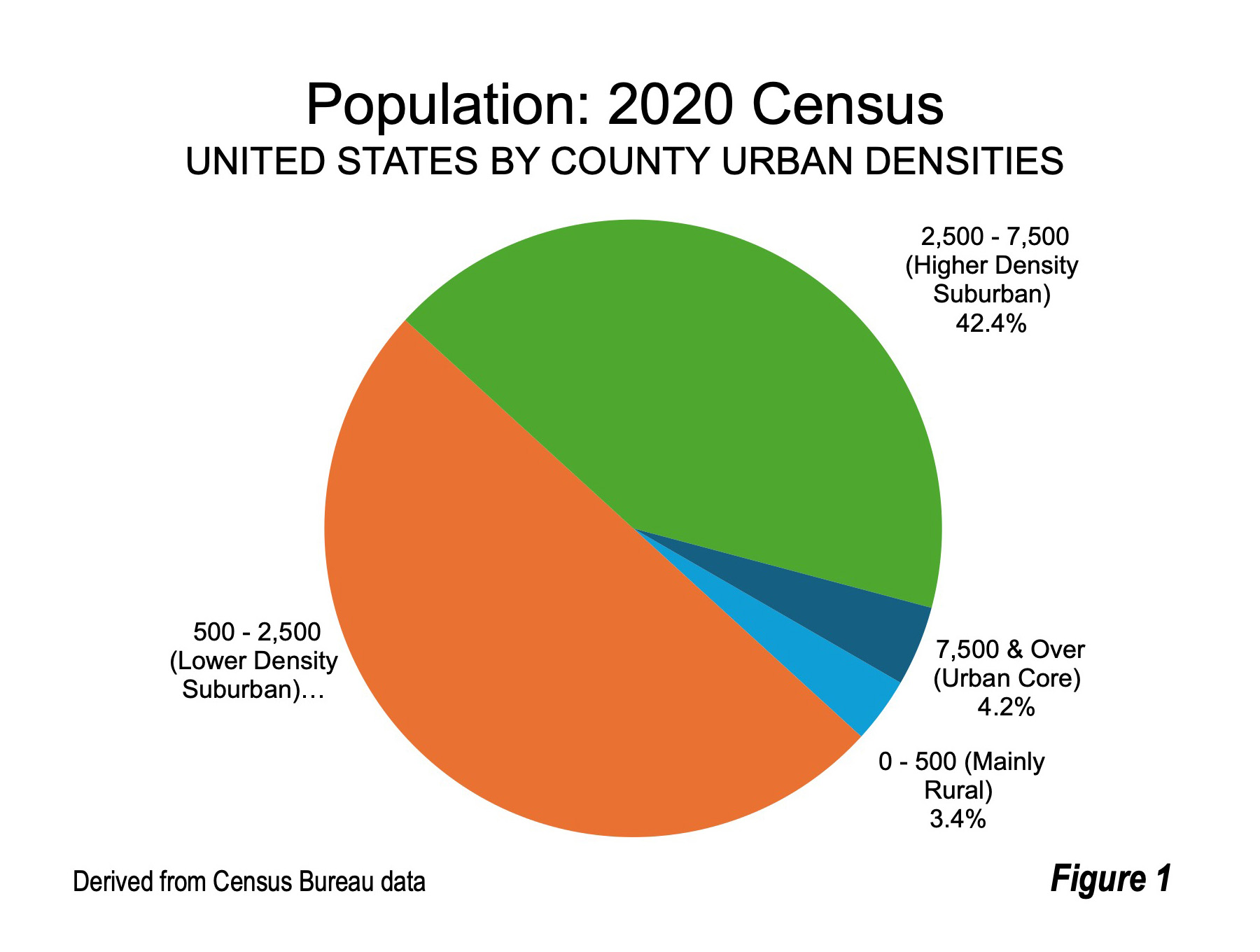
“A great city is not to be confounded with a populous one.” — Aristotle
American cities face an existential choice. They can continue down their current path – adopting policies that work against the interests of local residents – or develop new approaches to make urban life work for the broad majority.
Today, many urban centers, particularly older cities, are in decline. The proportion of Americans living in core urban areas has been decreasing for generations, a trend that has only accelerated in the wake of the pandemic, rising crime, and increasingly radical politics.

Economic and sociological trends are driving these changes. Even before the pandemic, the “transactional city” conceived by Jean Gottman – center of exchange, not production - was already facing challenges. Demographic and economic growth has shifted to less dense, often newer communities. The cities most identified with the transactional model – San Francisco, Chicago, and New York – are among those suffering the most.
Yet, urbanity itself – the concept of people living in proximity within a defined place – is far from dead. We continue to see the emergence of new communities on the urban periphery, as well as the revitalization of older suburban communities that are developing their own successful urban centers. In some major cities, even as office demand declines, residential construction continues to grow – particularly for the childless, young and affluent.
Rather than dismiss the urban future entirely, this paper explores how urbanism is being redefined in communities across the country. Cities, from the earliest times, have long been the cornerstones of human civilization. They will remain so – but in new and oft unrecognized forms, if local communities can organize themselves successfully.
View and download the full report here.
Joel Kotkin is the author of The Coming of Neo-Feudalism: A Warning to the Global Middle Class. He is the Roger Hobbs Presidential Fellow in Urban Futures at Chapman University and and directs the Center for Demographics and Policy there. He is Senior Research Fellow at the Civitas Institute at the University of Texas in Austin. Learn more at joelkotkin.com and follow him on Twitter @joelkotkin.












